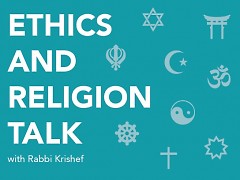It raises a number of ethical questions, including whether the government should sanction the creation of genetically-modified humans. Several prominent critics who oppose any human testing of the approach, arguing that it could be a slippery slope toward “designer babies,” — in which parents customize traits like eye color, height and intelligence.
Dennis asks, “The intent is to do good, but it can also be used for frivolous and, likely bad, purposes. The question is, do you draw a line in the use of this technology? And where is it drawn?”
The Reverend Colleen Squires, minister at All Souls Community Church of West Michigan, a Unitarian Universalist Congregation, responds:
“I find this question to be one of the most ethically challenging questions of our time. Unitarian Universalists are strong supporters of scientific discoveries and longtime believers in evolution, after all Charles Darwin was a Unitarian. So we would support scientific investigations that would help to eliminate debilitating genetic diseases. But at the same time we must also honor our first principle that affirms and promotes the inherent worth and dignity of every person.
“Science by its own nature will always look for the next new discovery and with that the next moral dilemma will be upon us. I do not think the purpose of religion is to stop science from progressing, I think as people of faith it is our calling to look deeply into what it means to affirm and promote the inherent worth and dignity of every person. There is no blanket answer of where to draw the line these are intimate and ultimately private decision between patient and physician.”
The Rev. Sandra Nikkel, head pastor of Conklin Reformed Church, responds:
“In Psalm 139:13 the Bible describes God as Creator: ‘For you created my inmost being; you knit me together in my mother’s womb.’ Improving life is one thing; tinkering with it is a totally different one. The fact is that no matter how equipped we think we are, when it comes to following our own logic or wisdom to create and recreate humans, we will always be in the dangerous realm of tinkering. Here is the definition of tinker: attempt to repair or improve something in a casual or desultory way, often to no useful effect.”
Rev. Ray Lanning, a retired minister of the Reformed Presbyterian Church of North America, responds:
“ ‘Every good gift and every perfect gift is from above, and cometh down from the Father of lights’ (James 1:17). Reformed Christians believe that every breakthrough in science or advance in knowledge is a gift from God. If a way has been found to prevent transmission of genetic diseases to future generations, we are inclined to welcome this latest gift from God and thank Him for it. It is possible to identify those who carry the genes responsible for these diseases, and apply this new technique to their case, without throwing the door open for ‘designer babies.’
“But we also know that sinful humanity has a way of abusing and misusing God’s gifts, so there is need for great caution. ‘God hath made man upright, but they have sought out many inventions’ (Ecclesiastes 7:29). People of wealth and people in power will doubtless want to use this technique for sinful ends. Sadly, many doctors and hospitals are willing to accommodate such people and do their bidding. What human agency is equal to the task of preventing such abuses and enforcing reasonable regulations? New techniques may alter our genes; they will not change human nature.”
Father Kevin Niehoff, O.P., a Dominican priest who serves as Adjutant Judicial Vicar, Diocese of Grand Rapids, responds:
“The Bishops of the United States (http://www.usccb.org/about/pro-life-activities/respect-life-program/2014/children-as-commodities.cfm) have been concerned about the technology used for reproductive purposes for quite a long time… even before some of us were born. For couples who cannot have children through the ordinary means of marital intercourse it can be quite painful. The Church feels that pain. Still, some methods used for producing offspring are not morally acceptable. For example, IVF (in-vitro fertilization). This is because more than one egg is fertilized and may be destroyed or kept frozen.
“Further, to use reproductive technology for obtaining children who will have certain traits, such as the color of hair or eyes, etc., enters into the realm of treating children as commodities. This raises the question of whether or not children are the possession of parents? The Church teaches that children are not the possession of the parents. Children, like all human beings, are God’s offspring, created in God’s image and likeness.
“The Bishops’ article on children concludes, ‘in love, hope, and prayer… let us be open to God’s gift of life and love in marriage, with profound respect for the dignity of all God’s children’ (ibid.).”
This column answers questions of Ethics and Religion by submitting them to a multi-faith panel of spiritual leaders in the Grand Rapids area. We’d love to hear about the ordinary ethical questions that come up on the course of your day as well as any questions of religion that you’ve wondered about. Tell us how you resolved an ethical dilemma and see how members of the Ethics and Religion Talk panel would have handled the same situation. Please send your questions to [email protected].
The Rapidian, a program of the 501(c)3 nonprofit Community Media Center, relies on the community’s support to help cover the cost of training reporters and publishing content.
We need your help.
If each of our readers and content creators who values this community platform help support its creation and maintenance, The Rapidian can continue to educate and facilitate a conversation around issues for years to come.
Please support The Rapidian and make a contribution today.
